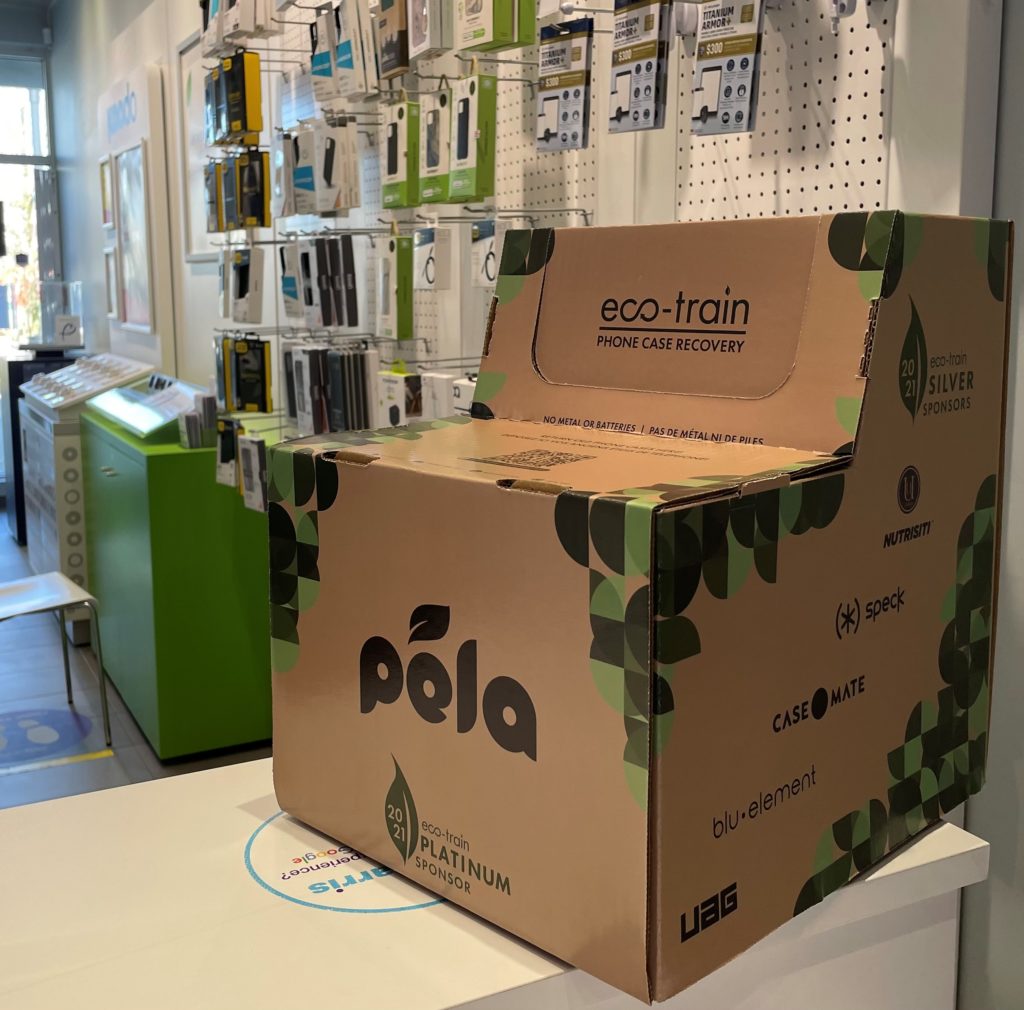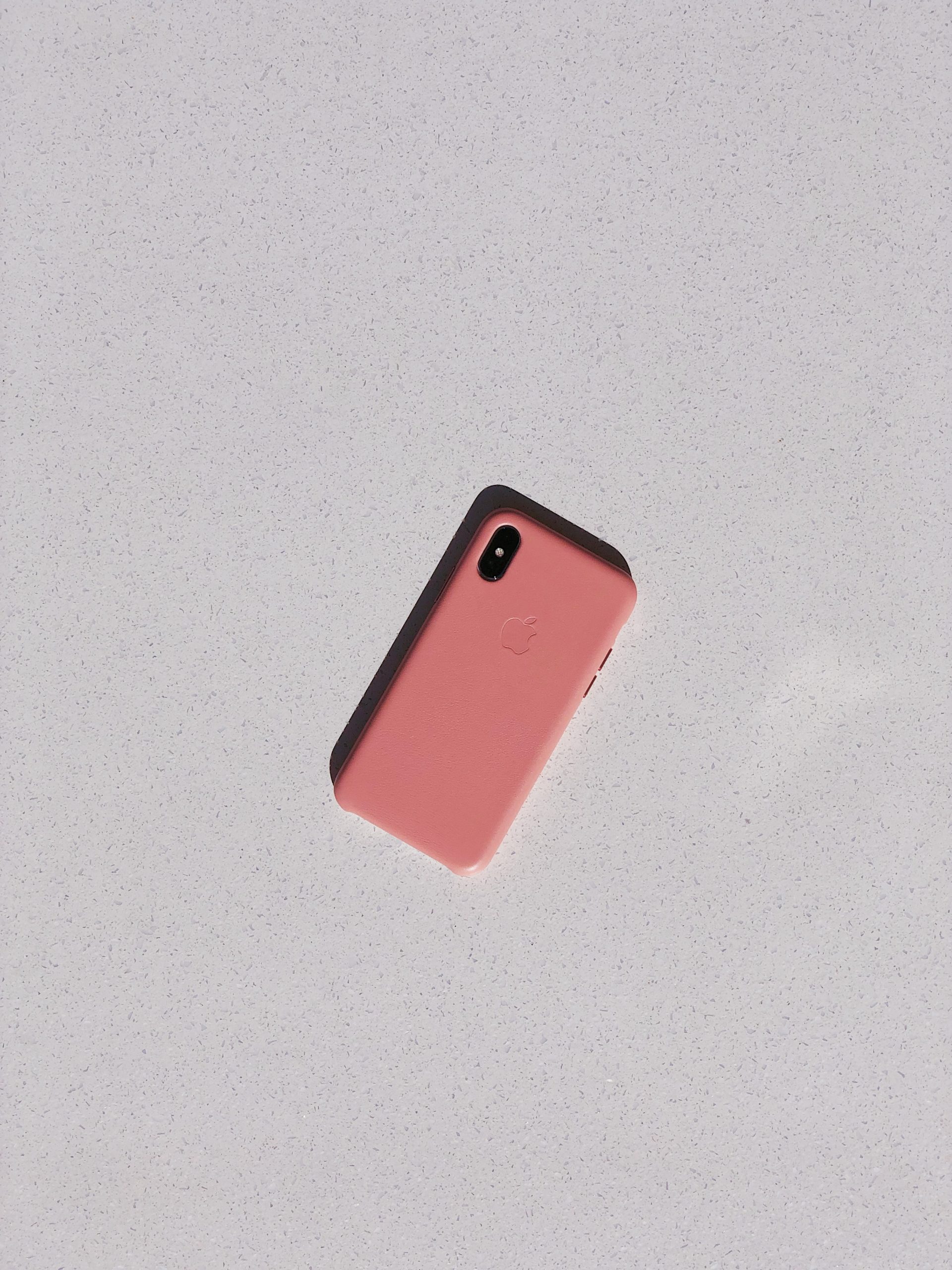Did you know that more than 31 million Canadians own a smartphone? We all rely on phone cases to protect our most indispensable device, but these phone cases contribute to our world’s plastic pollution, ending up in landfills coast-to-coast at an unthinkable rate. We chatted with Bob Cain of Eco-Train: an innovative Canadian start-up in Burnaby, B.C., which is expanding its mission to support earth-friendly products with the launch of Canada’s first-ever national recycling program for cellphone cases. —Vita Daily

Hi Bob! Please tell us a bit about yourself to start.
I grew in St. Catharines, Ontario. I attended Brock University and Niagara College studying Neuroscience and Electronic Engineering Technology. I started my family at a young age and raised three children who are now grown up in their mid to late 20s. My youngest, Lauren, has been very much involved with Eco-Train since day one as the graphic designer for the company. I moved to B.C. at the age of 41 with a keen interest in outdoor activities like mountain biking, hiking and kayaking. I’ve always felt a strong connection to nature and living in B.C. has been a lifelong dream. I’ve been living in B.C. for eight years now. To me, it’s the most perfect place in the world to live, work and play. I’ve worked in the Canadian wireless industry for nearly 20 years and sold a lot of accessories. The vast majority are mostly made of plastic and have been destined to eventually become landfill.
When and why did you launch Eco-Train? What’s your mission?
It was the summer of 2019. I was growing more and more concerned about the state of the environment. Between 2013 and 2018 we saw the five hottest annual temperatures ever recorded globally. Each summer the number of forest fires in B.C. seemed to be growing in number, getting bigger and lasting longer. There were times the entire province was consumed in smoke for a month or more at a time. It’s very troubling not to be able to see mountains 2-3 km away due to the thick cloud of smoke covering the western part of Canada and the U.S. I had also just learned that 20 per cent of the world’s coral had died between 2015 and 2018. More than half of the world’s oxygen comes from plant life in the ocean. I was deeply concerned about the state of the world and just how liveable it would be for our children, grandchildren and future generations. We’re in big trouble if society continues to accept the status quo by behaving, living and doing business the same ways we have in the past. I opened Eco-Train with the goal of spreading awareness about environmental issues while aiming to stimulate the behavioural shift necessary to turn things around. My original plan was to open a retail store and an e-commerce business that would sell exclusively earth friendly products while striving toward achieving a waste free future. Secondly, I wanted to build an awareness app to “train” consumers and businesses to become more sustainable in their everyday activities. Eco-Train commits to creating a sustainable consumer landscape with a focus on advancing the circular economy. We are dedicated to the promotion of Earth-friendly products and resource recovery to eliminate waste.
You most recently rolled out Canada’s first-ever national recycling program for cellphone cases. What’s the problem, environmentally speaking, with these (now) common items?
Shortly after opening Eco-Train, I was tasked with developing the “go to retail” market strategy for two new compostable phone case brands (Pela and Nutrisiti by Uunique London) while also being employed by Hitfar Concepts. I started my research by attending the 2019 Zero Waste Conference, which is held in Vancouver every year by the National Zero Waste Council as well as a Workshop for Compostable Plastics held by the Recycling Council of BC. It is these two events where I learned how catastrophic the global plastic pollution crisis is and that municipal waste management programs in Canada do not recognize compostable plastics in either the green or blue box programs. A significant and troubling gap existed that required immediate attention. I started the Phone Case Recovery program with the goal of educating all stakeholders in our industry about this issue with the goal of implementing an affordable and effective material recovery program to eliminate the waste generated by our industry.
Why can’t municipal recycling depots deal with phone cases?
The vast majority of phone cases are made from different combinations of mixed plastics. These different materials have been moulded together and have different melting points. Therefore, they cannot be recycled by traditional recycling methods. Secondly, even if a phone case is made from a single type of material, like PP#5 for example, the vast majority of North American recycling companies only accept PP#5 packaging like ketchup bottles but not PP#5 products like the Lifeproof WAKE phone case.
What about phone cases touted as sustainably made?
There are a number of phone case brands now making ASTM D6400 certified compostable phone cases. However, compost facilities only accept food waste and paper that break down in 4-6 weeks. They are in the business of selling compost and turning their product out quickly. Compostable phone cases may take up to two years to break down in an industrial compost facility. Therefore, industrial composters take them out and throw them in the garbage anyway. Same thing goes for compostable plastic coffee cup lids or food ware.
How does the Phone Case Recovery Program work?
There are a growing number of Canadian retail partners now supporting this program. Consumers can bring back their old phone cases and drop them in one of our Phone Case Recovery boxes. The retailers ship boxes of these cases back to an Eco-Train sorting facility. Eco-Train removes the compostable Pela cases and sends them back to Pela for either regrind/rebirth into new products, or Pela has the material properly composted. The rest of the cases are sent to one of our recycling partners to shred and grind the material for preparation to be sent to Geocycle for Co-processing. This keeps the material from ever becoming landfill or pollution and provides 100 per cent value recovery of the materials.
Any other common items you have your eye on, in terms of creating better recycling options?
Toys are next. There are mountains of children’s toys thrown away in landfills every year. It’s imperative that we teach children at a young age the importance of recycling and not throwing things away when they are done using them.
eco-train.com

Be the first to comment